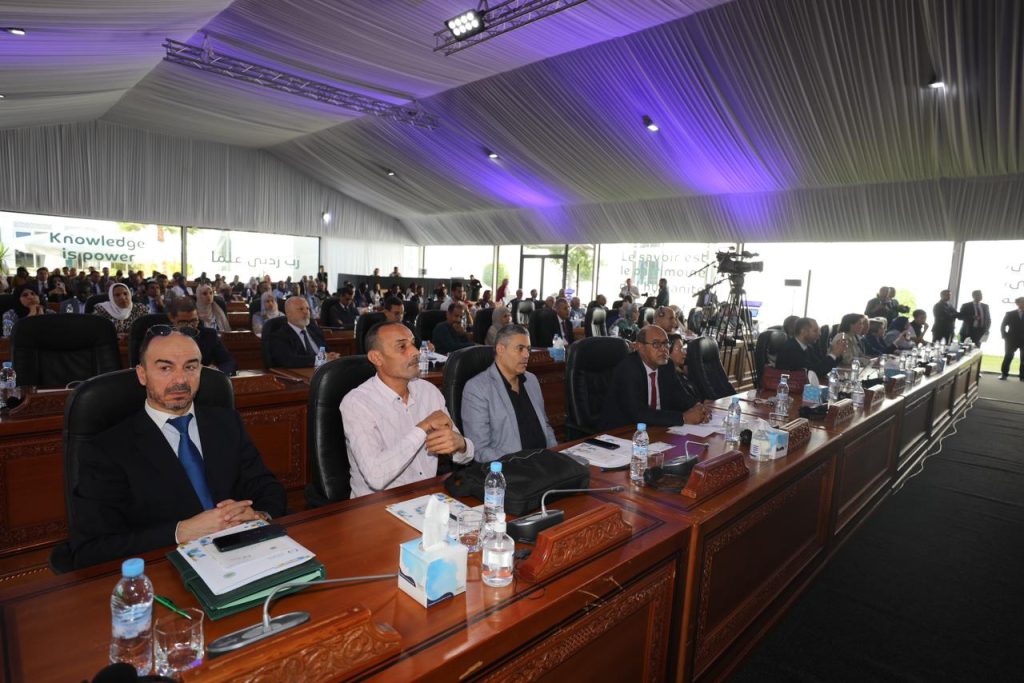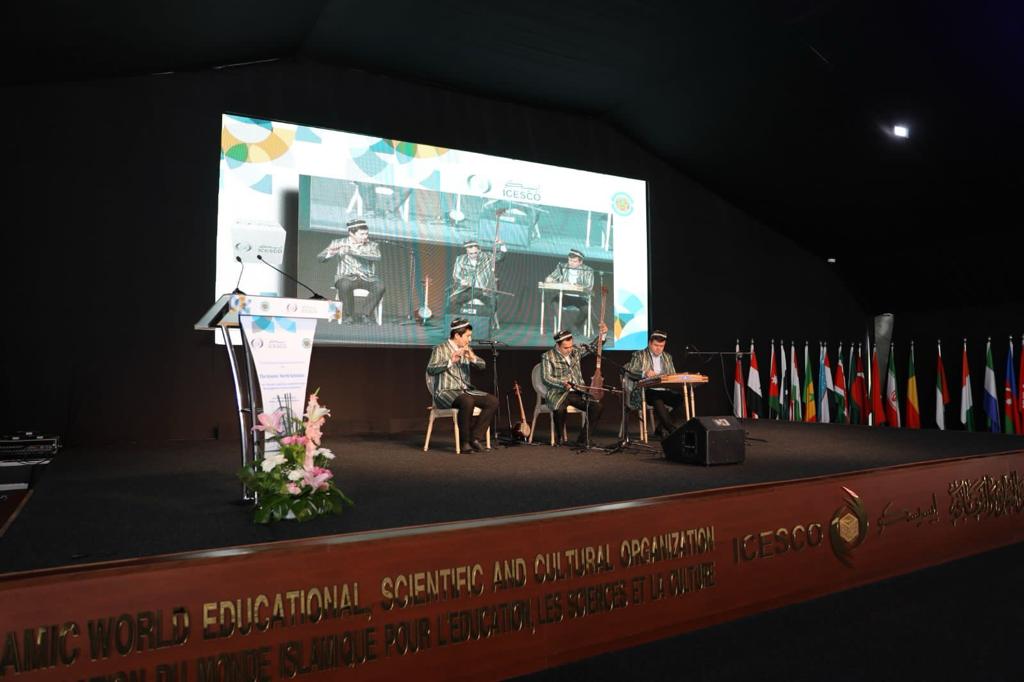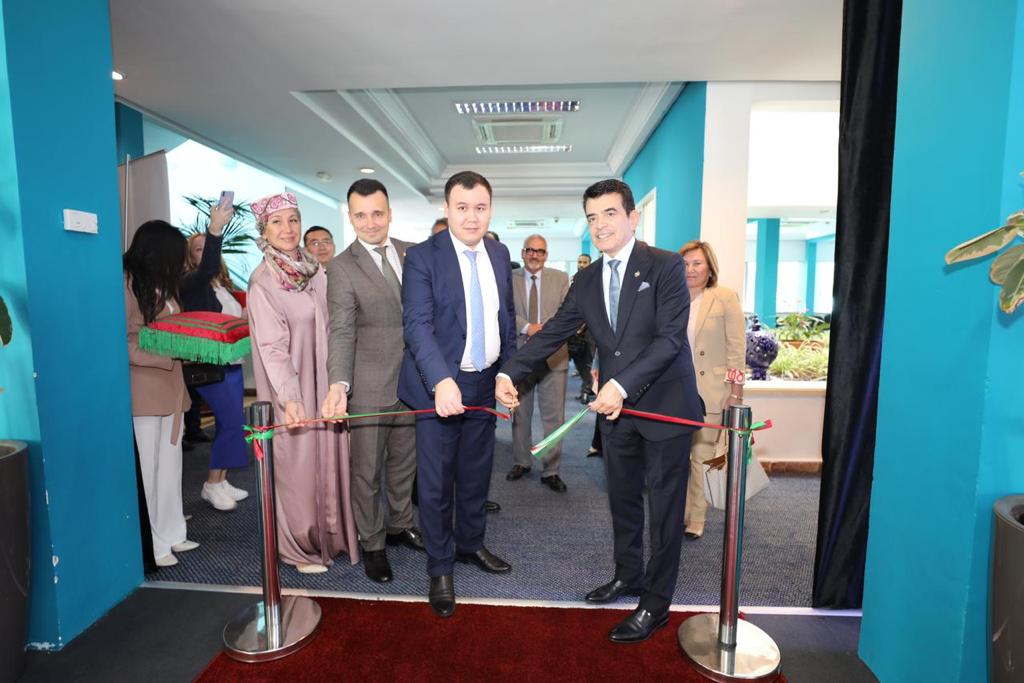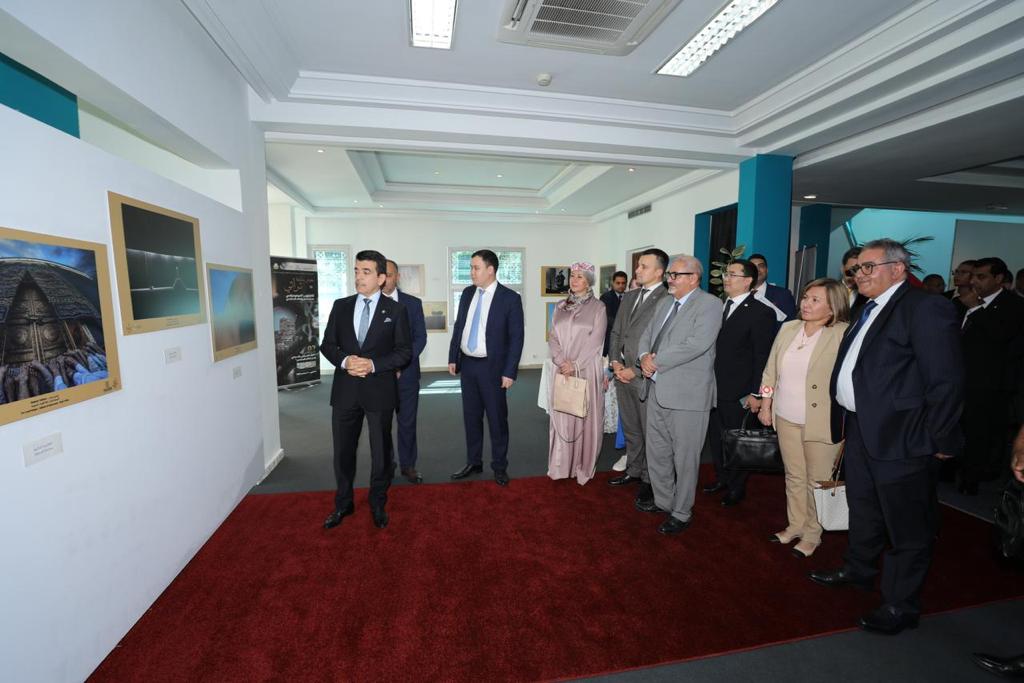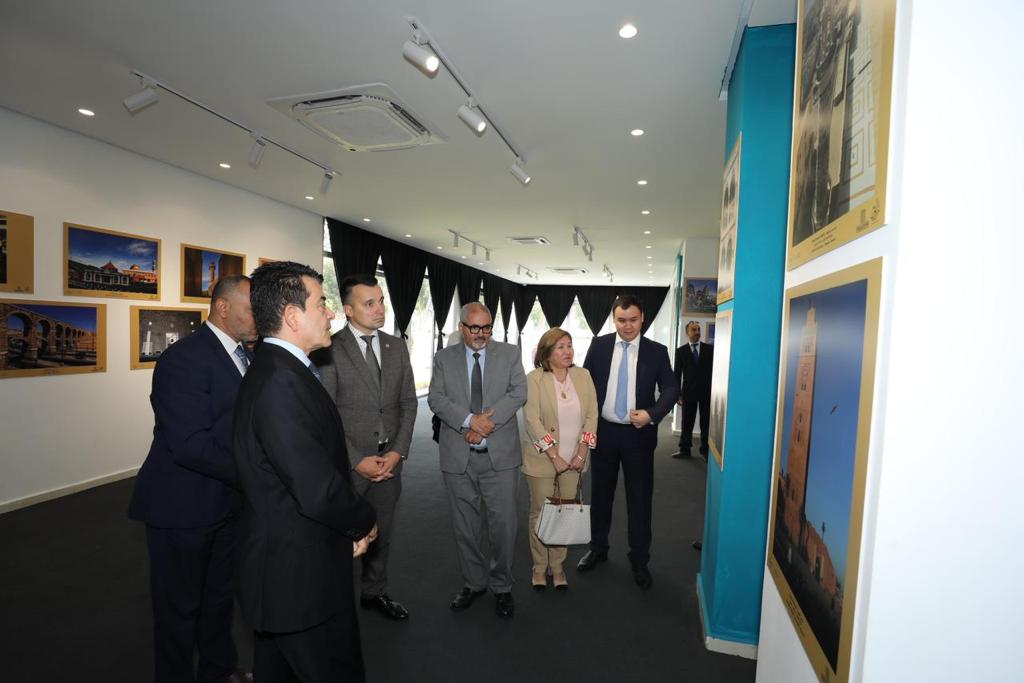
ICESCO’s International Conference on Islamic World Scholars discusses Al-Farabi’s scientific contributions and philosophical works

12 October 2023
The headquarters of the Islamic World Educational, Scientific, and Cultural Organization (ICESCO) hosted the first edition of the International Conference on the Islamic World Scholars, under the theme: “Al-Farabi’s and contributions throughout human history,” on Wednesday 11 October 2023. The two-day Conference is organized by ICESCO in partnership with the Ministry of Foreign Affairs of the Republic of Kazakhstan, represented by the Embassy of Kazakhstan in Rabat.
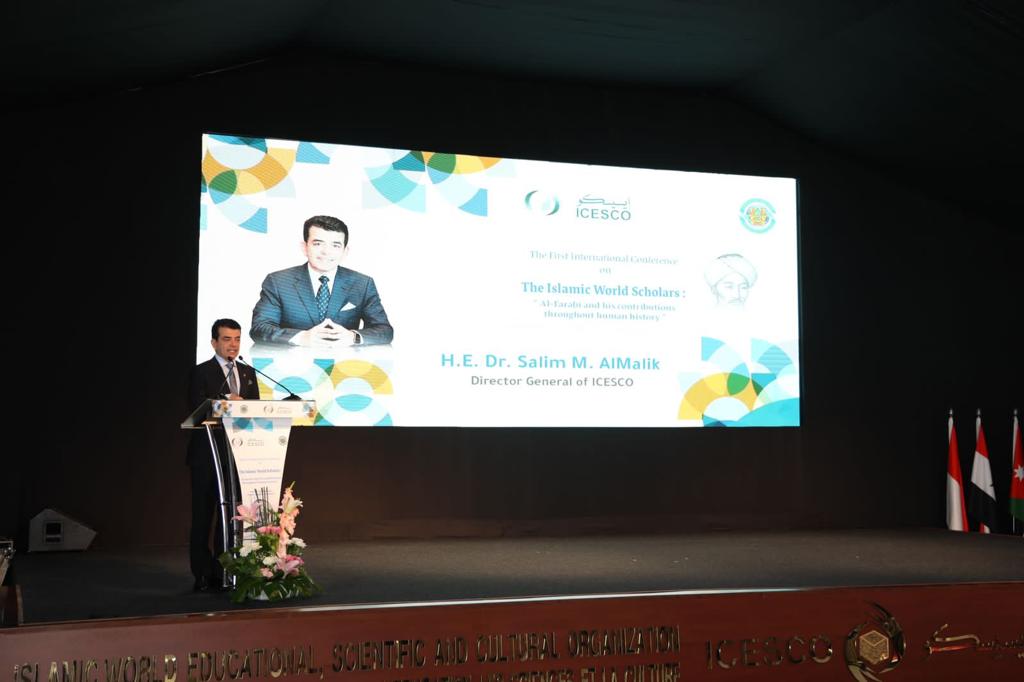
The Conference’s opening ceremony saw high-level attendance, including officials and members of the diplomatic corps, as well as a group of distinguished researchers and university professors from several countries. Dr. Mohamed Zinelabidine, Head of Culture and Communication Sector at ICESCO, began the opening session with an overview of the world-renowned scholar Abu Nasr Al-Farabi, his unique contributions, and his significant role in enriching global thought and the Islamic renaissance.
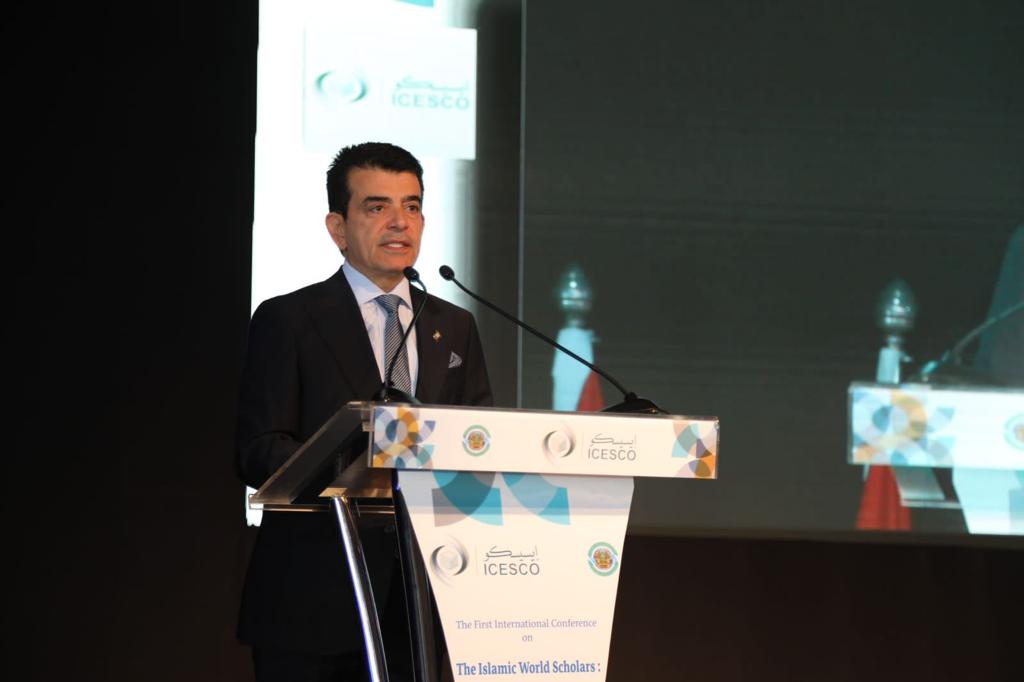
In his address, Dr. Salim M. AlMalik, ICESCO Director-General, emphasized that Al-Farabi has left an unmatched wealth of scientific knowledge in language, philosophy, and music. “He authored nearly 100 books on most of the subjects of his era, tackling the legacies of Plato and Aristotle, and faithfully translating their work into Arabic. The body of his work, thus, became the channel through which ancient and Islamic philosophies were passed on to the European Renaissance era. Even today, he is highly regarded and studied by researchers and philosophers and is often referred to as the “Second Teacher” after Aristotle,” underline Dr. AlMalik.
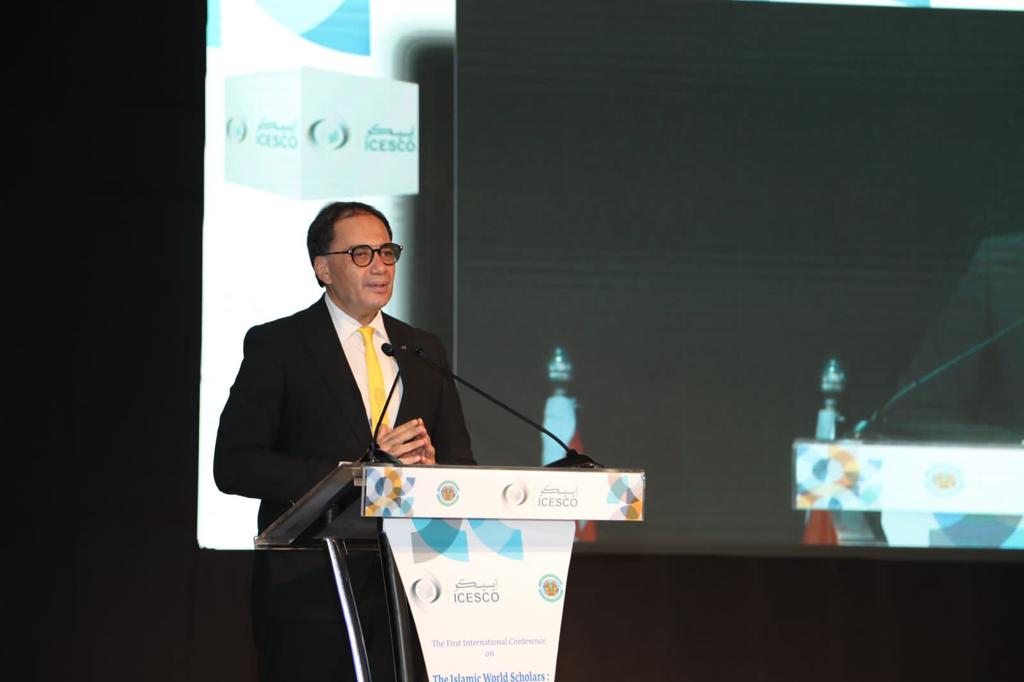
ICESCO Director-General highlighted that Al-Farabi’s homeland, Kazakhstan, is characterized by its ethnic and religious diversity and that it has brought up many other prominent leaders and scholars, adding that it encourages and promotes dialogue among different religions and cultures. He concluded his remarks by stressing ICESCO’s keenness to underline the pioneering role played by Islamic scholars throughout the ages as an inspiration for youth.
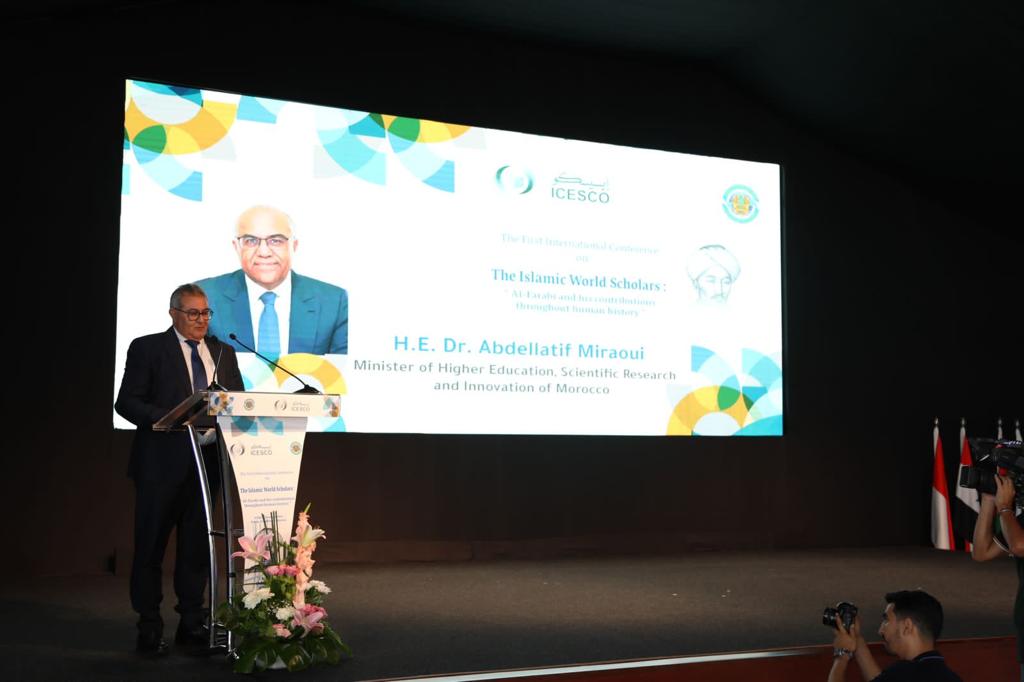
For his part, Dr. Abdellatif Miraoui, Minister of Higher Education, Scientific Research and Innovation of the Kingdom of Morocco, in an address delivered on his behalf by Mr. Mohamed Khalfaoui, the Ministry’s Secretary-General, highlighted that the Conference is an opportunity to showcase the role of Al-Farabi in shaping human thought, reviewing the Ministry’s efforts to encourage scientific research.
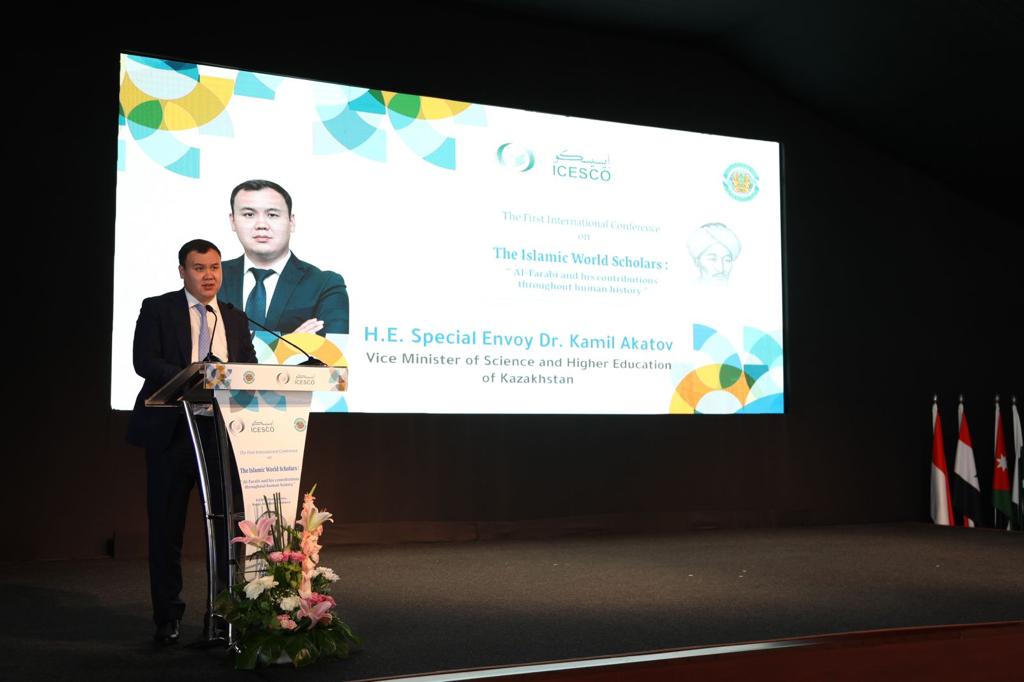
In his address, Dr. Kamil Akathov, Deputy Minister of Science and Higher Education of the Republic of Kazakhstan, pointed out that the Ministry strives to highlight Al-Farabi’s scientific legacy by supporting numerous scholars in studying his contributions and research in innovation and science, considering the wealth of scientific knowledge that this great scholar left, which serves, to this today, as a reference to advance scientific research.
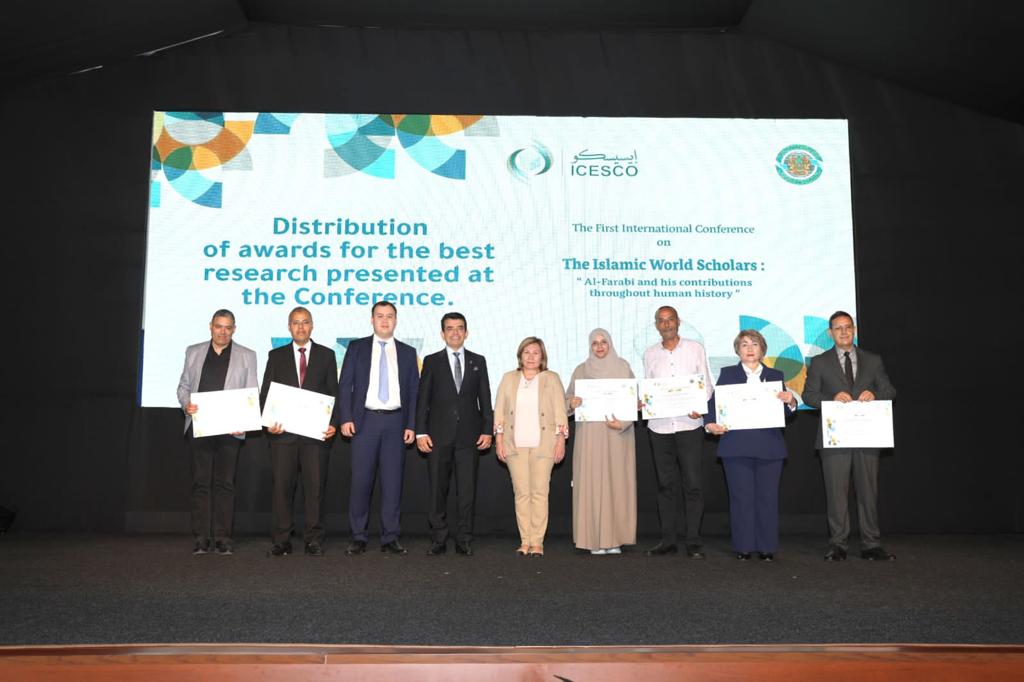
Following this, Dr. AlMalik, Dr. Akatov, and Ms. Saulekul Sailaukyzy, Ambassador of the Republic of Kazakhstan in Rabat, presented awards to the winners of the competition for the best research papers on the intellectual contributions of Al-Farabi. The first prize was jointly awarded to Dr. Zadash Dukenbayeva from Kazakhstan and Dr. Salem Ayadi from Tunisia, while the second prize was jointly awarded to Dr. Ahmed Attia from Egypt and Dr. Ahmed Saadi from Morocco. The third prize was jointly awarded to Dr. Huda Mubarak Aldayri from the Sultanate of Oman and Dr. Iqbal Maulana Alfiansyah from Indonesia, and lastly a recognition award was given to Dr. Anis Meddeb from Tunisia.
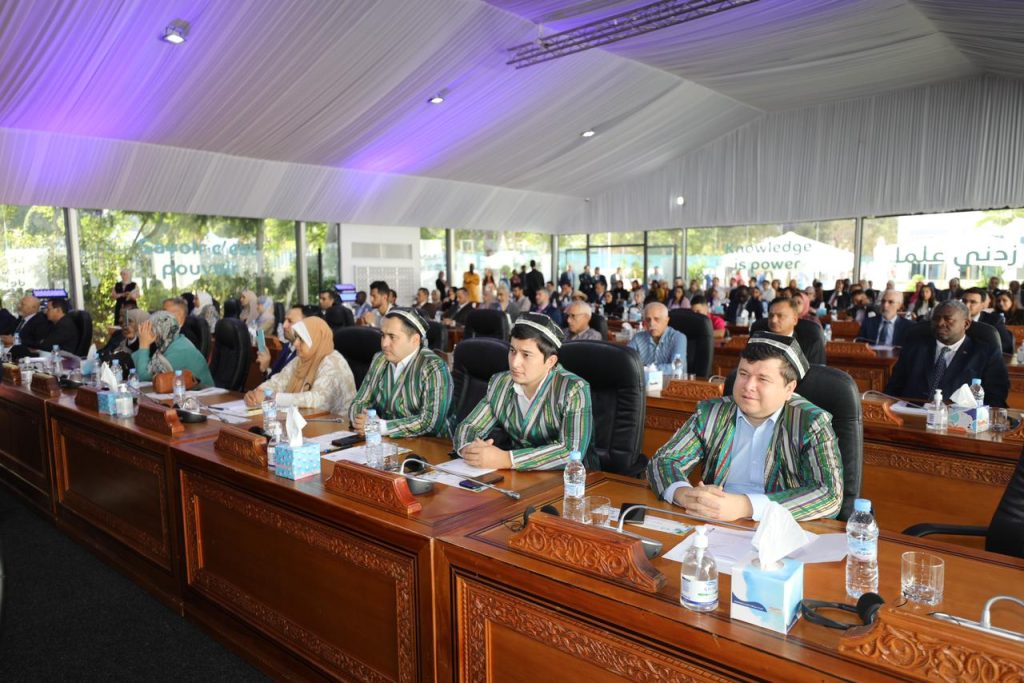
The opening session also witnessed the signing of a memorandum of understanding between the Federation of Universities of the Islamic World, affiliated with ICESCO, and Al-Farabi Kazakh National University, aiming to strengthen cooperation in the fields of education, science, and technology. The MoU was signed by Dr. Omar Halli, Advisor to ICESCO Director-General in charge of the Federation of Universities of the Islamic World, and Dr. Ainur Kurmanalieva, the Executive Director of the university.
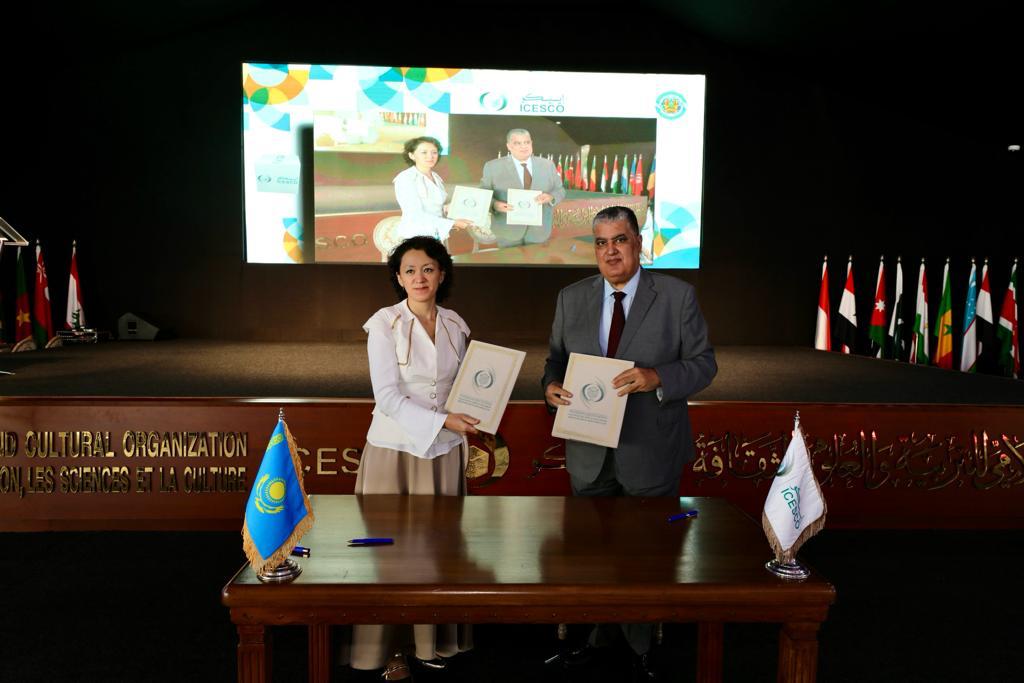
In his address via videoconference following the signing ceremony, Dr. Zhanseit Tuimebayev, Rector of Al-Farabi Kazakh National University in the Republic of Kazakhstan, praised the significant legacy left by this scholar, through which he laid the foundations for inter-civilizational dialogue.
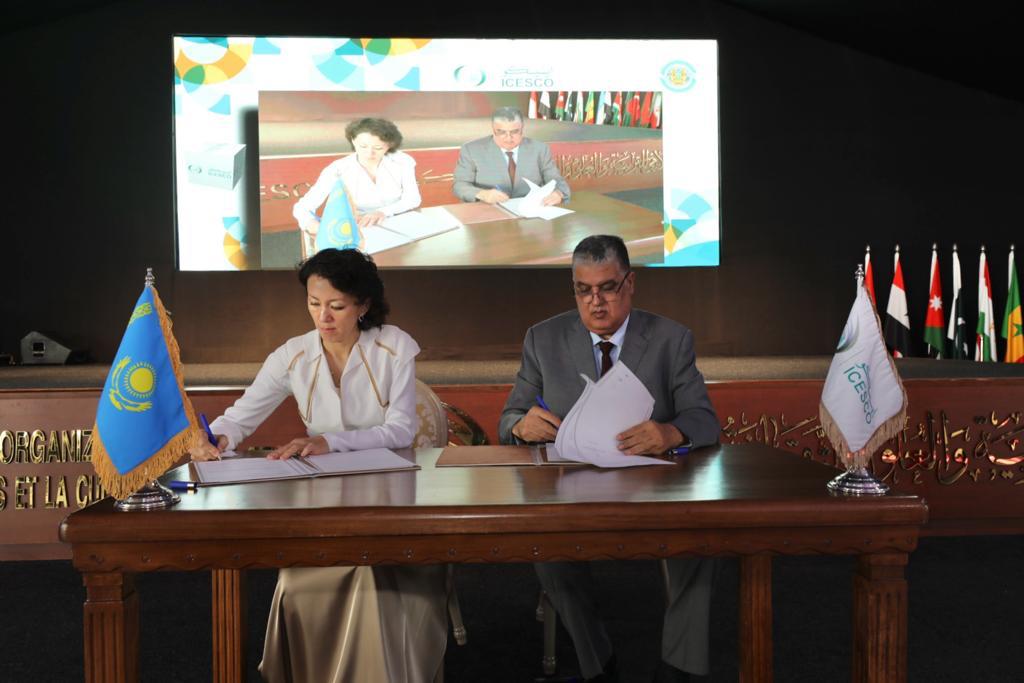
Afterward, the participants watched an introductory film on Al-Farabi and enjoyed a musical performance from the Republic of Uzbekistan. Following that, the names of the winners of the second phase of the Turathy Photography Competition in Egypt and the Islamic world were announced. The Competition, which focuses on the ” Architectural and Urban Heritage of Islamic World Cities,” and was launched by ICESCO and the Egyptian Ministry of Culture, exhibited its winning photographs at ICESCO Headquarters.
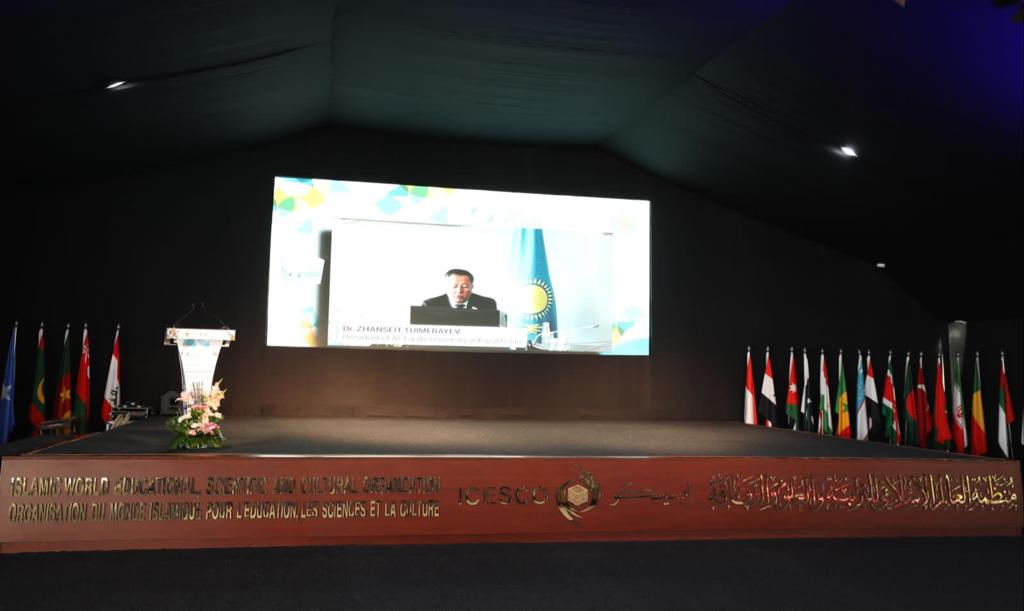
The first day of the Al-Farabi Conference continued with sessions covering “Al-Farabi and his Impact on humanist philosophy” and “Al-Farabi’s theories in the fields of the philosophy of science and political philosophy.” These sessions featured rich discussions that explored Al-Farabi’s contributions in various areas and their impact on human thought throughout the ages.
